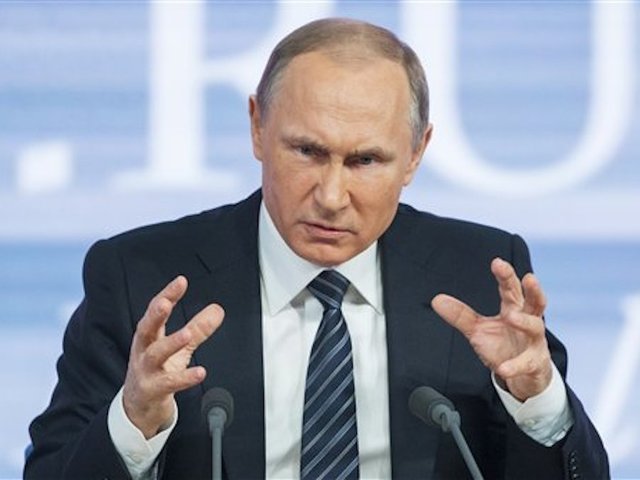-
Tips for becoming a good boxer - November 6, 2020
-
7 expert tips for making your hens night a memorable one - November 6, 2020
-
5 reasons to host your Christmas party on a cruise boat - November 6, 2020
-
What to do when you’re charged with a crime - November 6, 2020
-
Should you get one or multiple dogs? Here’s all you need to know - November 3, 2020
-
A Guide: How to Build Your Very Own Magic Mirror - February 14, 2019
-
Our Top Inspirational Baseball Stars - November 24, 2018
-
Five Tech Tools That Will Help You Turn Your Blog into a Business - November 24, 2018
-
How to Indulge on Vacation without Expanding Your Waist - November 9, 2018
-
5 Strategies for Businesses to Appeal to Today’s Increasingly Mobile-Crazed Customers - November 9, 2018
Ship with low-enriched uranium leaves Iran for Russian Federation
A ship carrying over 11-thousand kilograms low-enriched uranium materials has departed from Iran, heading for Russian Federation.
Advertisement
State Department spokesman Mark Toner described the cargo as a 25,000-pound “combination of forms of low-enriched uranium materials” including five and 20 percent enriched uranium, scrap metal and unfinished fuel plates. Iran has always said its nuclear work is peaceful and the uranium fuel was intended for medical purposes. Low-enriched uranium can be used to generate electrical power, but it must be enriched further to create weapons-grade material.
In a statement carried in Iranian state media Monday, Iran’s senior nuclear negotiator Abbas Araqchi echoed comments made by President Hassan Rouhani earlier this month, saying he expects Implementation Day to occur next month.
.
The deal aims to reduce Iran’s ability to make nuclear weapons – something Tehran says it has no interest in doing.
A key provision of the agreement, negotiated by Iran with the United States, Britain, China, France, Russia and Germany, is Tehran’s commitment to reduce its stockpile of low-enriched uranium to below 300kg.
This “Implementation Day” will come after the United Nations nuclear watchdog, the International Atomic Energy Agency (IAEA), rules that Tehran has complied with its obligations. In this vitally important case, Norway contributed critical funding to the commercial transactions involved in reducing the amount of enriched uranium in Iran, and also provided expertise in managing some of these transactions.
A report this month by the International Atomic Energy Agency, which is overseeing the deal’s implementation, determined that Iranian scientists had researched weapons development until 2009.
Kerry noted that “we understand Iran is moving quickly” to dismantle the uranium enriching infrastructure in an attempt to meet a January target date for implementation. The new law prohibits Iranian dual citizens or people who have recently traveled to Iran from entering the USA through the special Visa Waiver Program that allows entry without the need for obtaining a visa.
In a letter sent last week to Iran’s foreign minister Javad Zarif, US Secretary of State John Kerry said the new law does not contradict the JCPOA.
Advertisement
Even as Iran was moving to complete one key commitment, the Foreign Ministry warned that Tehran would reciprocate if there is any breach in the deal.





























